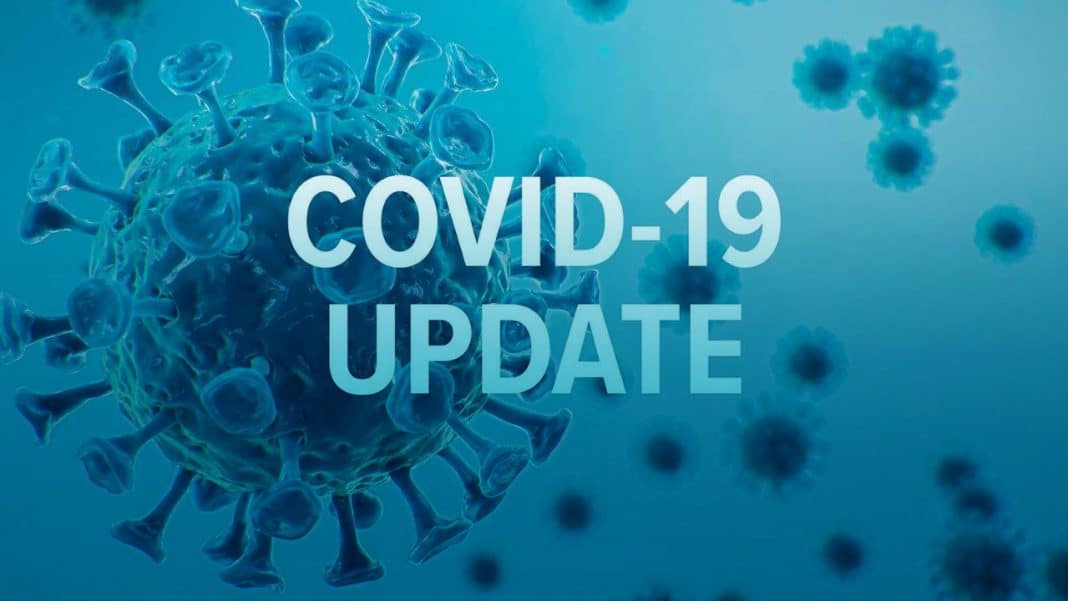The ACT has recorded 22 new cases overnight, 12 linked to existing cases with the remaining 10 under investigation.
Seven of the ACT’s 22 new cases were in quarantine for their entire infectious period. Seven spent some time in the community while infectious with the remaining eight still under investigation.
Ten are in hospital with or due to COVID-19. Three are in intensive care all requiring ventilation.
The age range of the ICU patients is from their 30s to their 60s. The oldest patient hospitalised with COVID-19 is in their 90s.
Of the 10, one is fully vaccinated, two have received one dose and seven are unvaccinated.
The total cases for this outbreak in the ACT now stands at 804; there are 237 active cases and 566 have recovered.
For the last month, the average daily case number has been 17.6 with the average for the entire outbreak (since 12 August) at 17.1.
The average number of cases notified per week stands at 123, with 32 still being the highest number of cases notified on a single day.
Over half the cases are male and the median case age is 26-28 years.
There are 88 cases where the source of transmission is unknown, over half registered in the past two weeks.
“These mystery cases suggest unidentified chains of transmission,” ACT Deputy Chief Health Officer, Dr Vanessa Johnston said.
“This is where our public health social measures come in to play in restricting that movement around the community when we know we have unidentified cases.”
Thirty-two separate clusters have been identified since the beginning of the outbreak on 12 August with an average of 16 cases per cluster and a range of two to 52 cases.
A total of 3710 tests were conducted yesterday.
Ten per cent of cases are waiting five or more days before getting tested, a cause for concern according to Chief Minister Andrew Barr.
“If you delay getting tested, every day has a big impact” both in terms of the number of people potentially being infected and on the possible treatment you may require, Mr Barr said.
“There are some COVID-19 treatments that need to be administered within five days of an individual experiencing symptoms in order for them to be fully effective.”
On the vaccination front, there are about 45,000 first doses still to go and approximately 145,000 second doses.
Mr Barr advised those eager to get a jab to monitor the online booking systems as earlier appointments do “often” open up at ACT Government clinics, pharmacies and GPs.
“I’ve seen posts on social media from particular pharmacists in the ACT saying they have seven or eight appointments available in the next few hours if people want to come forward,” he said.
The Chief Minister also noted he has reached an “in principle agreement” with Commonwealth Treasurer Josh Frydenberg on an extension of the co-funded COVID-19 business support payments.
The detail of the agreement will be finalised today with a joint statement expected tomorrow.
Mr Frydenberg on Wednesday outlined a plan to phase out billions of dollars in federal cash assistance once 70 and 80 per cent of over-16s have been vaccinated in a state or territory.
The COVID disaster payment provides $750 a week for people who have lost 20 or more hours of work and $450 for those under that threshold.
People on income support who lose eight hours can access $200 a week.
But once a state reaches 70 per cent two-dose vaccination coverage, workers will have to reapply each week for the payments to prove they are eligible.
At 80 per cent, there will be a two-week transition to support being cut off.
Mr Barr said the “gradual tapering” of the disaster payments aligns with the ACT’s ‘pathway forward’ roadmap document released earlier this week.
He expected a lot more people to be able to return to work as the ACT eases restrictions further from 29 October.
Get all the latest Canberra news, sport, entertainment, lifestyle, competitions and more delivered straight to your inbox with the Canberra Daily Daily Newsletter. Sign up here.



